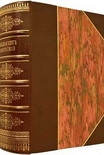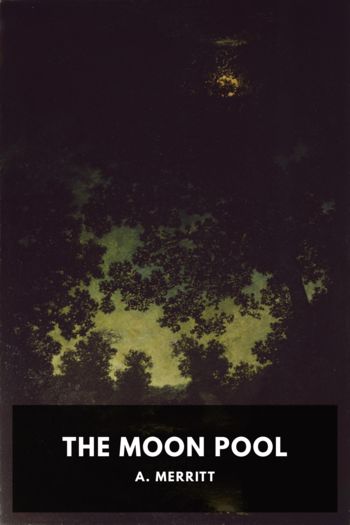How to Become a Witch by Amber K. (large ebook reader txt) 📗

- Author: Amber K.
Book online «How to Become a Witch by Amber K. (large ebook reader txt) 📗». Author Amber K.
The Craft As Art, Skill,
Knowledge & Practice
So, what is this “practice” of Witchcraft? In traditional terms, the arts of the Witch include divination, magick or spellcrafting, and healing, which was sometimes indistinguishable from magick to our ancestors. Along the way, many Witches gain skills in planning and leading rituals, teaching, group leadership, creating beautiful art in service to Deity, and more. We will explore these further in chapter 12, because each of these skills can become a spiritual vocation.
After salem
Many people have heard of the Salem Witch Trials that disrupted Salem Village and other towns in colonial Massachusetts in 1692 and 1693. Over 150 people were arrested, some after accusations by hysterical girls. Twenty people were hanged or, in one case, crushed with heavy stones.
No one knows exactly what prompted the whole crazy episode. Some say that economic rivals were using the girls’ nonsense as an excuse to destroy their enemies. Others say that ergot, a natural hallucinogen, got into the food supply and drove the people mad. We may never know.
Not many people know that within a few years, many of those involved—judges, jurymen, and clergy—began to repent their actions and ask forgiveness. Soon some of the convictions were reversed and monetary damages paid to survivors and relatives. But it was not until October 31, 2001, that the governor of Massachusetts signed a resolution by the House of Representatives declaring all the victims to be innocent.
Divination is the art of foreseeing trends and discovering hidden knowledge using tools such as tarot cards, runestones, a pendulum, or a scrying mirror. With such tools and sufficient training and practice, we can learn more about ourselves and the future than is apparent on a mundane level. We will discuss this in greater depth in chapter 10.
Magick itself has many definitions, which will be described in chapter 8. For now, it is enough to say that magick is a powerful tool for changing yourself and the world, and it is usually nothing like the fantasy magick we see on television or in movies.
Not every Witch considers herself or himself to be a healer, though all of us do healing magick occasionally. In the past, the village wisewoman was often the midwife and herbalist too, and the local “cunning man” could usually mix a healing potion or set a broken bone. Today many, many Witches have healing specialties within the mainstream (doctors, nurses, medical technicians) or outside it (herbalists, reiki practitioners, crystal energy workers).
A skill is a set of practices that almost anyone can develop, given time and instruction. An art is a set of skills with an added component of creativity. Most of what Witches do is a combination of skill and art; while anyone can learn the uses of herbs and first aid, we all know those who add something extra, the creativity and inspiration that turns an herbalist into a true healer. It is the same with divination or magick; anyone can learn the basics, but some have a natural gift for it.
Part of becoming a Witch is discovering your aptitudes and developing your particular esoteric skills, whether as healer, weather worker, spellworker, dowser, shapeshifter, or any of dozens of other special disciplines (see chapters 10 and 12).
The Craft As Spiritual Path
Witchcraft as a spiritual path is often called Wicca, although not all those who follow this path call themselves Wiccan—some just call themselves Witches.
Wicca is a religion, and like almost all faiths, it includes deities. Now, if you grew up in a family that had one god, and he was an old guy with a long white beard who was “out there” somewhere, then you’re in for a surprise.
Here are the basic things you need to know about Wicca and Deity:
First, Deity is immanent in Wicca. It’s not out there somewhere, above and beyond the world we live in; Deity is actively involved in the world, because it permeates all people and all things. In Wicca, God is not pure Spirit but Spirit embodied and expressed through matter—through us, among other things (and we mean all other things). Think Eywa and the Na’vi in the movie Avatar.
Working with deity
We’ve mentioned several times that Wiccans “work with” Deity—what’s that all about? Witches tend not to worship Deity—as in veneration and adulation—so much as honor them or partner with deities in whatever magickal working the Witch undertakes. For now, it’s enough to say that we view the deities as powerful partners in this magickal life. When we need something that is within the realm of one or more deities—for example, healing, for which Isis and Brigit are famous—we will do a ritual and invite them to join us, to lend their energies to our work. This is rather like asking your Uncle Charles, who is very good at woodworking, to join you when you decide to make a chair. On the spiritual level, we ask deities to join us as we work magick. And as we call them with love and respect, they lend their powers to the work at hand.
A common saying in Wicca is “Thou art Goddess” or “Thou art God.” When a Witch says this, they don’t mean that you are the Creator and Source of all things, but that you are an integral part of the Creator…maybe one neuron in God’s brain, for example. You are not just created by Deity, you are part of Deity; you are sacred.
Second, Deity can be understood as either masculine or feminine, or both—Goddess as





Comments (0)